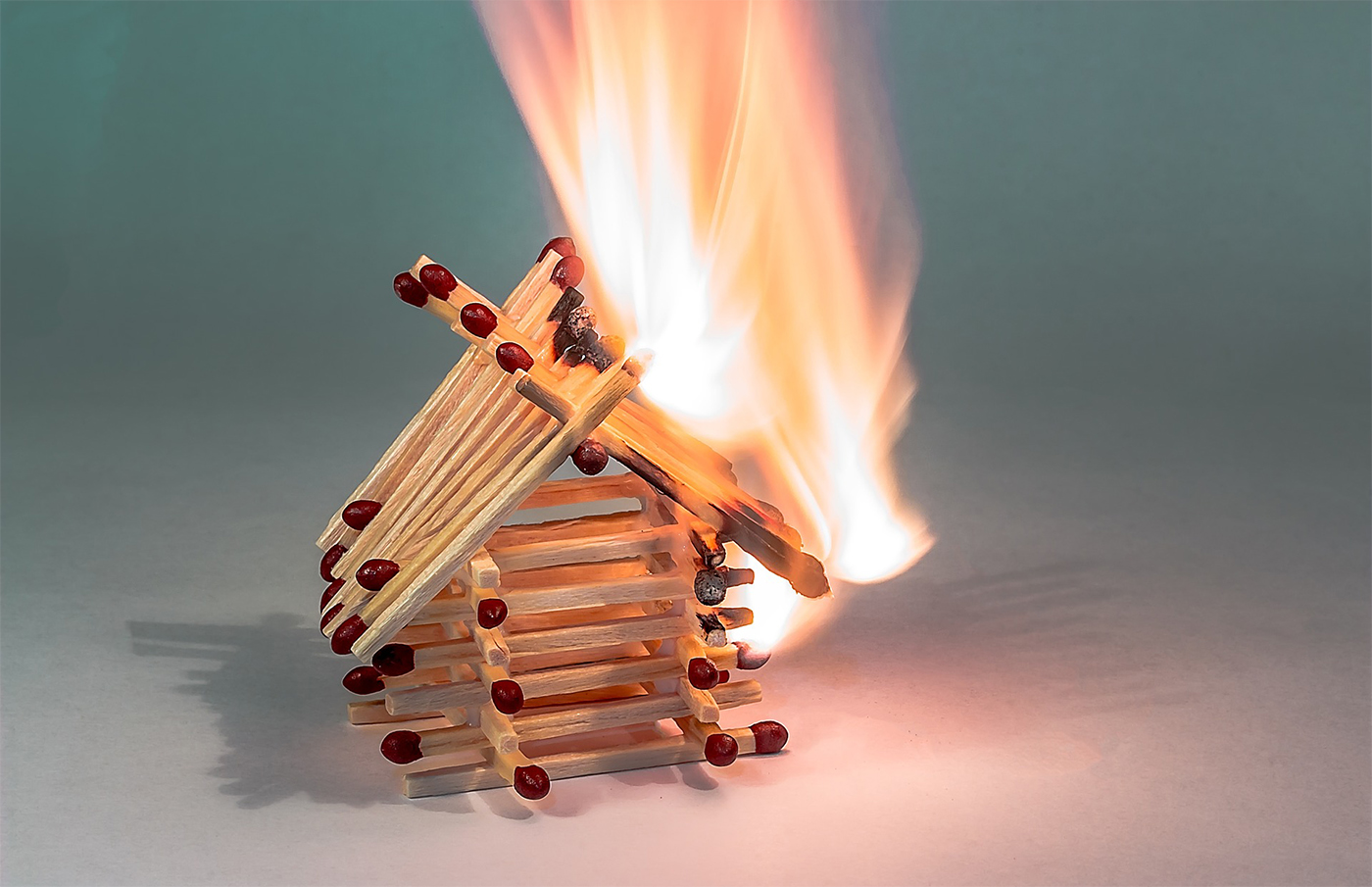
Fire prevention in homes
In Spain, fires in homes in 2018 accounted for a total of 123 deaths, although there is no official data for 2019 yet, everything indicates that this figure will be higher than the previous year. It should also be noted that assets worth more than 300 million euros were burned.
The growing trend of this last year, despite all the regulatory and technological advances, makes us think that something is not quite right. For many years, industry associations have been demanding that the use of smoke detectors be obligatory in homes as is the case in other countries such as the United States, even more so, when most of these fatalities are elderly and 70% of the victims die from smoke inhalation.
In this post we intend to give a series of simple tips that will help prevent fires and, if it has already started, what to do about it. We are going to do this in 3 phases:
- Before the fire: AVOID IT.
- If it is in the initial phase: TURN IT OFF.
- If it is already advanced: PROTECT AND EVACUATE.
1) FIRE PREVENTION:
- Do not overload the plugs. More than 20% of fires are caused by electrical overloads. Avoid the use of thieves by replacing them with socket strips and make sure that these have the CE mark. Even so, the use of mobile device chargers should be checked, as these have a transformer integrated and can overheat. In addition, the power strip should be turned off when not in use, to save energy and prevent fires.
- Keep heat sources away from combustible materials: If you have heat sources in your home such as heaters, irons, electric blankets, dryers, etc., you should keep a safe distance from combustible or highly combustible materials.
- Do not cover heat sources such as radiators or heaters either aesthetically or for drying clothes (common use in winter), as there are highly flammable synthetic fabrics.
- Do not allow children to play with fire. This is obvious, but fires occur every year for this reason.
- Replacing Resistance or Gas Heaters with Oil Radiators is much safer. Avoid the use of braziers and even more so under tables.
- Make sure that cigarette butts are perfectly extinguished and avoid smoking in bed, if you are a smoker.
- If you have a fireplace, avoid placing combustible materials near it and avoid having children near it.
- Be very careful with aromatic or decorative candles and check that they have gone out after use.
- In the Kitchens watch out for oil heating and keep the extractor hoods clean. The increased use of induction hobs or ceramic hobs to replace gas flames and safer cooker hoods has meant that the kitchen is no longer the main source of fire in the home. Now most fires in a home occur in the living room and bedrooms.
- If a gas leak is detected, the electricity supply should be cut off and the house should be left immediately to avoid deflagration.
- Sleeping with the door closed: As we have said, smoke kills many more people than flames. It has been proven that sleeping with the door closed helps to delay the effects of smoke.
2) FIRE EXTINGUISHING:
Only if the fire is in its initial state should you try to extinguish it by the following means:
- COOLING: Water has a double effect when applied to a fire focus, it cools both the focus and the nearby combustible material. In addition, the water vapor generated when applied to the fire source makes a barrier that prevents the passage of oxygen needed by the fire as an oxidizer. Water should not be applied to oil, fuel or electrical fires.
- SUPPRESS: Remove access to the oxidant (O2) and the fire will be extinguished. This can be done with a fire blanket or even a lid when a pan is burning.
- FUEL REMOVAL: Moves the combustible material away from the source of the fire, this simple gesture can cause the fire to spread due to lack of fuel. In some cases, the fuel can also be diluted so that it does not burn or takes longer to burn.
- USE A FIRE INHIBITOR (Extinguisher): Chemicals that react with fire usually by lowering temperature and removing oxygen. There are different types of fire extinguishers indicated for each type of fire. It is necessary to observe that the extinguisher has in its label the letter of the fire that we are going to extinguish.
3)PROTECT YOURSELF AND EVACUATE:
In case the fire is already widespread:
- If the fire has spread to your clothes or hair: The important thing in this case is not to run, this will fan the flames. If it affects your hair you should cover it with a cloth or towel and if it affects your clothes you should lie down on the ground and roll over yourself until the flames go out. If there is someone near you, you can also cover it up to eliminate the oxygen and make it go out.
- If the fire prevents you from leaving the house or building: You should go to the room furthest from the fire by closing all doors in your path, cover the door slots with rags rather than wet ones, and make yourself visible from the windows to the outside.
- Otherwise: Evacuate the building. If we have smoke, we must duck to be able to breathe properly.
In this last case, to facilitate the correct evacuation of the building to another sector or the exit and without smoke, is where Mercor Tecresa® has developed its Passive Fire Protection products, preventing the building from collapsing, maintaining the fire sectorization and eliminating the smoke from the evacuation routes.
